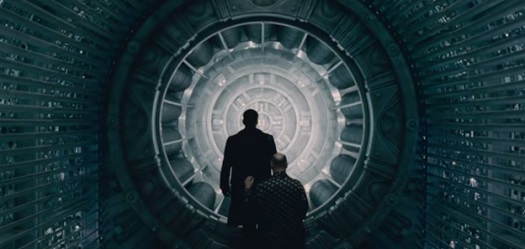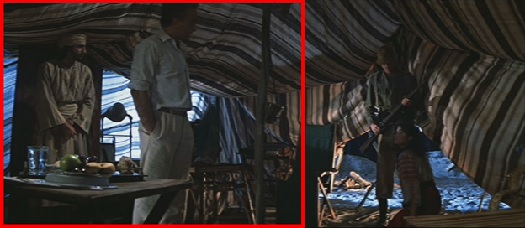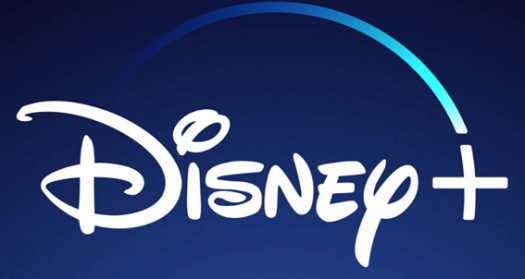Intermarkets' Privacy Policy
Donate to Ace of Spades HQ!
aceofspadeshq at gee mail.com
Buck:
buck.throckmorton at protonmail.com
CBD:
cbd at cutjibnewsletter.com
joe mannix:
mannix2024 at proton.me
MisHum:
petmorons at gee mail.com
J.J. Sefton:
sefton at cutjibnewsletter.com
Hobby Thread - February 21, 2026 [TRex]
Ace of Spades Pet Thread, February 21
Gardening, Home and Nature Thread, Feb. 21
When will the left show us what "The Right Side of History" should look like?
The Classical Saturday Morning Coffee Break & Prayer Revival
Daily Tech News 21 February 2026
A Meme Is A Terrible Thing To Waste
Vehicular Tension Cafe
The Week in Woke
Jim Sunk New Dawn 2025
Jewells45 2025
Bandersnatch 2024
GnuBreed 2024
Captain Hate 2023
moon_over_vermont 2023
westminsterdogshow 2023
Ann Wilson(Empire1) 2022
Dave In Texas 2022
Jesse in D.C. 2022
OregonMuse 2022
redc1c4 2021
Tami 2021
Chavez the Hugo 2020
Ibguy 2020
Rickl 2019
Joffen 2014
maildrop62 at proton dot me
Saturday Evening Movie Thread 06-08-2019 [Hosted By: TheJamesMadison]
The Future of Home Video

The future of home video is bleak. Well, mostly bleak. There's one very bright spot, but it's pretty much all bleak beyond that.
Movie theaters will always exist, but they've already become carnival attractions for the newest large corporate product. It's rare for something that's not tied to some previously established property to get a wide release.
Most people watch movies at home now. Hell, I've been to the theaters four times this year, but I've watched at least 200 movies since the beginning of January. I'm not terribly optimistic about what that experience is going to become.
History
Watching movies at home has been possible since the advent of film. It was just that in order to watch a movie at home for the first eighty years or so you needed a specialized room, a projector, specialized sound equipment, a screen, and total darkness. Here's a clip from the great Sunset Boulevard that shows Norma Desmond's setup where she watched her old silent classics.
Home video was the act of the rich and famous, and then came videotape. After a format war between JVC and Sony, where JVC's VHS beat out Sony's Betamax for consumer's hearts and dollars, America began to watch films at home whenever they wanted. Free from the theater and the decisions of network broadcasters, individuals and families could watch what they wanted whenever they wanted without having to consult Disney about whether Pinocchio was in a re-release or not.
Studios had a love/hate relationship with videotape. On the one hand, VHS was a new revenue stream for them, totaling millions of new dollars a year. On the other hand, the re-release began to lose its appeal and revenue capabilities. Fewer people starting going to see Pinocchio in theaters again when they had just bought the VHS and could let their five year old watch it on an endless loop at home.
In college, I took a handful of classes with Stephen Prince, the film scholar who's written a few books about Japanese cinema and does the occasional audio commentary for the Criterion Collection. One of the things he said in class that's stuck with me is that movie studios want a system where audiences pay for every viewing of their films. Videotape robbed them of that.

For all the videotape offered audiences, one thing it didn't give us was a high quality experience. The tapes were mechanical devices for reading magnetic tape. The shape of televisions was different from what movie screens had become. They reflected the reality of cinemas until the 50s and the advent of widescreens as a gimmick (that stuck, like sound) of differentiating the movie going experience from watching a movie at home on broadcast television. The image at home was cut small, and even then, it was low resolution. Sound was, at best, stereo and prone to crackles. The mechanical nature of the VHS tape made them prone to degradation.
Laserdisc came along and was largely ignored by consumers. The discs were as large as LPs and you needed to spread movies across multiple discs. And, for all of laserdisc's fans, the format was an improvement in quality, but not big enough to justify the significantly larger storage required compared to the VHS. DVDs, though, were a different story.
VHS was a revolution in access, but DVD was a revolution in quality. Images were sharper, colors were brighter and across a much wider range, sound was more dynamic allowing for more complex setups like surround sound and eventually THX support. And the discs could contain significantly more information than a VHS tape while taking up smaller physical space. We all see the collections of 50 movies in one small package at stores. The movies are spread across about 10 discs and the size is tiny for what the consumer has to dedicate to physical storage. When the discs were done right, they looked amazing (even today, there are DVDs that manage to look very high quality even on HDTVs). Studios, long acclimated to the reality of home video, were ecstatic with the financial results. DVD was huge for them.
Then came Blu-Ray. Six times the density of pixels for image quality, America had, for the first time, what looked like movie theater quality video on their home televisions. Even home projectors, now a much less expensive and disruptive proposition than before, could display images across a wall from a disc and it remained sharp. In this era, the movie connoisseur changed from quantity to quality. Labels such as The Criterion Collection, that had existed since Laserdisc and had always taken pride in presenting the best quality image, took things into overdrive with digital techniques to clean up image and sound of older movies in order to help preserve them and give the best experience to the home audience.
The final step is UHD (Ultra High Definition). With increased bitrates and a new technology called HDR (High Dynamic Range), discs present even higher quality images with a broader range of colors that more accurately mimic the reality of how light passes through film in a projector. This is the bright spot of the future of home video. This is theater quality image in the home. It's hard to imagine home theater image and sound getting qualitatively more impressive in the future than this.
You Skipped Streaming

Oh, no I didn't. Streaming is the desolate wasteland of our future, and we are seeing its effects now.
"How can that be?" some of you may be asking. "I can watch whatever I want by just selecting it from a menu!"
I've always been wary of streaming, but the original reasons for that originated from an element of the Luddite in my soul that I can't quite get rid of. I wanted physical media, and I couldn't imagine other people wanting something else. Well, I get the appeal of streaming now, but I've seen the limitations and they worry me.
They aren't technical limitations. The technology will only continue to improve. We're even at the point where we can stream 4K UHD image with HDR over the Internet. Streaming and physical media are largely at a par in terms of technical delivery.
No, the problem goes back to that which Stephen Prince told my class about how studios want to make their money. Studios have seen physical media profits plateau and begin to fall. They see the future as streaming, and they love the idea because suddenly they have more control over media. No longer will they have to manufacture and then say goodbye to the film once a consumer purchases it. No. Instead, a consumer will purchase, at best, a license for the film that gives them access to the film within the terms of the contract. If the studio wants, it could pull the movie completely. Or change it. Something similar happened when Microsoft recently closed down its eBook store. All licenses expired automatically and everyone lost access to their books. Consumers won't have to rely on themselves to keep their media in good shape anymore. They'll have to rely on movie studios staying in business and continuing to provide access.
The other side of this is the dispersion of media across many studios and how that will play out. At the moment, we're in a period when virtually every studio wants its own streaming service. They want consumers to pay at least $10 a month for access to the library. Netflix started this model. HULU followed. Amazon Prime followed. And now we're going to get Disney+. If you want to rely on streaming to view things, you could need to subscribe to a dozen different services to get access to everything you want.
This move isn't sustainable, and I suspect that the boom will collapse into something more centralized where you purchase access to a core package and then subscribe to add-ons (like Disney, or Warner Brothers, or Paramount). Essentially, they'll become cable packages through aps.
This complete loss of control on the part of the consumer is why I hate the future of home video.
An Unfounded and Uneducated Ray of Hope

Fred M. Vinson, Chief Justice of the Supreme Court, 1946-1953
U.S. v. Paramount Pictures, et al. is a 1948 Supreme Court decision that had the effect of movie studios in a rather profound way. In short, it was a 20+ year legal battle between independent movie producers and the Department of Justice against the biggest movie studios regarding their power and vertical integration of the film business. The studios were found to be in a monopolistic business model and in violation of the Sherman Act. In the end, there were changes around how studios could book individual films and enter into agreements with independent movie theaters and the studios divested themselves of all of their movie theaters that they owned.
It was a huge decision that is partially credited with ending the studio system and the Hays Code.
And I think that it could end up having some bearing on the future of streaming. Imagine a situation where Disney releases something big but exclusively through Disney+. This is something that Disney would normally release in theaters and across multiple platforms, but Disney decides that its market position is strong enough that they can pull in enough customers on their platform to cover the costs of production and marketing. Theaters sue. The suit makes it to SCOTUS and SCOTUS ends up saying that Disney+ is in violation of the Sherman Act and U.S. v. Paramount Pictures, et al.. SCOTUS then demands that production companies cannot own streaming services, in the same way that movie theaters were nearly forced (it was somewhere between forced and voluntary) to divest themselves of their theaters.
The Department of Justice went through a comment period last year on the Paramount Decree as it decided to revisit its enforcement of it. The implication seemed to be about relaxing enforcement rather than finding new ways to apply it, but I can still hold out hope. That also doesn't speak to a consumer advocacy group or a group of movie theaters taking suit in such a case.
And the Come Down
I don't actually expect U.S. v. Paramount Pictures, et al. to be the driving force that prevents the inevitably from occurring. I just kind of blindly hope for it.
The future is going to be cloud based. Physical media will stick around for a while, but studios are going to be happy to be rid of it. They'll increase control over their product for a longer period of time, and they'll lower their production costs on home video releases. It'll be just finding another few gigabytes on the server rather than pressing thousands of discs, printing thousands of covers, and placing that all in thousands of cases. On top of that, ease of use tends to win for consumers, and once we get to a cleaner delivery vehicle for streaming content, consumers will chose that over physical media in even greater numbers than they already do.
But hey, at least what we get will look great.
Movies of Today
Opening in Theaters:
Once Upon a Time ... in Hollywood
Next in my Netflix Queue:
The Maze Runner
Movies I Saw This Fortnight:
The Lion King (Netflix Rating 2/5 | Quality Rating 1.5/4) Full Review Poster blurb: "So, yeah, it’s the same movie, but worse." [Theater]
Under the Silver Lake (Netflix Rating 4/5 | Quality Rating 3/4) Full Review "In the end, I appreciate the movie’s messiness and find what’s there to be quite engaging. It’s not great, but definitely worth a watch." [Amazon Prime]
Safety Not Guaranteed (Netflix Rating 4/5 | Quality Rating 3/4) Full Review "It’s sweet yet barely holds together, and I have no idea what Spielberg saw in this that led to him giving Colin Trevorrow control of the Jurassic Park franchise." [Netflix DVD]
Star Trek Beyond (Netflix Rating 5/5 | Quality Rating 3.5/4) Full Review "It’s a rocking, rolling, good time and it actually has good characters and a solid story behind it." [Personal Collection]
After the Rehearsal (Netflix Rating 4/5 | Quality Rating 3/4) Full Review "It’s a good little movie, a fascinating little footnote in Bergman’s career." [Personal Collection]
The Touch (Netflix Rating 4/5 | Quality Rating 3/4) Full Review "In fact, from the time I started this review to this moment, I’ve actually grown in appreciation of the film." [Personal Collection]
The Serpent's Egg (Netflix Rating 2/5 | Quality Rating 1/4) Full Review "All in all, though, a deeply disappointing effort from Bergman that might be his worst movie." [Personal Collection]
Big Trouble in Little China (Netflix Rating 4/5 | Quality Rating 3/4) Full Review "Still, it’s a fun ride, and I can’t wait for Hollywood to remake it with a bloated 150 minute epic adventure that will in no way improve on the little 100 minute rollercoaster we already have." [Personal Collection]
Contact
Email any suggestions or questions to thejamesmadison.aos at symbol gmail dot com.
Follow me on Twitter.
I've also archived all the old posts here, by request. I'll add new posts a week after they originally post at the HQ.
JTB: "TRex, Thanks for another fun thread. Even when I c ..."
OrangeEnt: "You can bet on that! Edgar Buchanan, Real Dentist ..."
TRex - Au dino: "Time to say thank you before the next act takes th ..."
"Perfessor" Squirrel: "11 My current hobby is running around The Shire in ..."
San Franpsycho: "Makes the grubs taste better. Posted by: Aetius45 ..."
Cicero (@cicero43): "I got my roller furling unjammed today with the he ..."
San Franpsycho: "A cage trap baited with a honey bun, and a .22 pis ..."
Aetius451AD work phone: "My latest ploy is red pepper. Supposedly it is a r ..."
San Franpsycho: "My latest ploy is red pepper. Supposedly it is a r ..."
Diogenes: "Off to a pub for dinner! Posted by: Alberta Oil P ..."
TRex - predictive dino: "100 I just checked, and they have a youtube channe ..."
Hobby Thread - February 21, 2026 [TRex]
Ace of Spades Pet Thread, February 21
Gardening, Home and Nature Thread, Feb. 21
When will the left show us what "The Right Side of History" should look like?
The Classical Saturday Morning Coffee Break & Prayer Revival
Daily Tech News 21 February 2026
A Meme Is A Terrible Thing To Waste
Vehicular Tension Cafe
The Week in Woke
Paul Anka Haiku Contest Announcement
Integrity SAT's: Entrance Exam for Paul Anka's Band
AllahPundit's Paul Anka 45's Collection
AnkaPundit: Paul Anka Takes Over the Site for a Weekend (Continues through to Monday's postings)
George Bush Slices Don Rumsfeld Like an F*ckin' Hammer
Democratic Forays into Erotica
New Shows On Gore's DNC/MTV Network
Nicknames for Potatoes, By People Who Really Hate Potatoes
Star Wars Euphemisms for Self-Abuse
Signs You're at an Iraqi "Wedding Party"
Signs Your Clown Has Gone Bad
Signs That You, Geroge Michael, Should Probably Just Give It Up
Signs of Hip-Hop Influence on John Kerry
NYT Headlines Spinning Bush's Jobs Boom
Things People Are More Likely to Say Than "Did You Hear What Al Franken Said Yesterday?"
Signs that Paul Krugman Has Lost His Frickin' Mind
All-Time Best NBA Players, According to Senator Robert Byrd
Other Bad Things About the Jews, According to the Koran
Signs That David Letterman Just Doesn't Care Anymore
Examples of Bob Kerrey's Insufferable Racial Jackassery
Signs Andy Rooney Is Going Senile
Other Judgments Dick Clarke Made About Condi Rice Based on Her Appearance
Collective Names for Groups of People
John Kerry's Other Vietnam Super-Pets
Cool Things About the XM8 Assault Rifle
Media-Approved Facts About the Democrat Spy
Changes to Make Christianity More "Inclusive"
Secret John Kerry Senatorial Accomplishments
John Edwards Campaign Excuses
John Kerry Pick-Up Lines
Changes Liberal Senator George Michell Will Make at Disney
Torments in Dog-Hell
The Ace of Spades HQ Sex-for-Money Skankathon
A D&D Guide to the Democratic Candidates
Margaret Cho: Just Not Funny
More Margaret Cho Abuse
Margaret Cho: Still Not Funny
Iraqi Prisoner Claims He Was Raped... By Woman
Wonkette Announces "Morning Zoo" Format
John Kerry's "Plan" Causes Surrender of Moqtada al-Sadr's Militia
World Muslim Leaders Apologize for Nick Berg's Beheading
Michael Moore Goes on Lunchtime Manhattan Death-Spree
Milestone: Oliver Willis Posts 400th "Fake News Article" Referencing Britney Spears
Liberal Economists Rue a "New Decade of Greed"
Artificial Insouciance: Maureen Dowd's Word Processor Revolts Against Her Numbing Imbecility
Intelligence Officials Eye Blogs for Tips
They Done Found Us Out, Cletus: Intrepid Internet Detective Figures Out Our Master Plan
Shock: Josh Marshall Almost Mentions Sarin Discovery in Iraq
Leather-Clad Biker Freaks Terrorize Australian Town
When Clinton Was President, Torture Was Cool
What Wonkette Means When She Explains What Tina Brown Means
Wonkette's Stand-Up Act
Wankette HQ Gay-Rumors Du Jour
Here's What's Bugging Me: Goose and Slider
My Own Micah Wright Style Confession of Dishonesty
Outraged "Conservatives" React to the FMA
An On-Line Impression of Dennis Miller Having Sex with a Kodiak Bear
The Story the Rightwing Media Refuses to Report!
Our Lunch with David "Glengarry Glen Ross" Mamet
The House of Love: Paul Krugman
A Michael Moore Mystery (TM)
The Dowd-O-Matic!
Liberal Consistency and Other Myths
Kepler's Laws of Liberal Media Bias
John Kerry-- The Splunge! Candidate
"Divisive" Politics & "Attacks on Patriotism" (very long)
The Donkey ("The Raven" parody)

